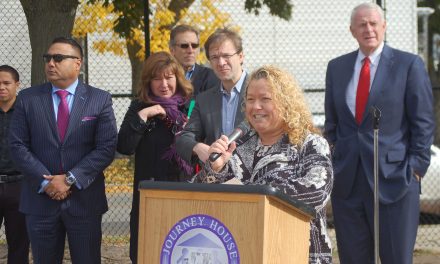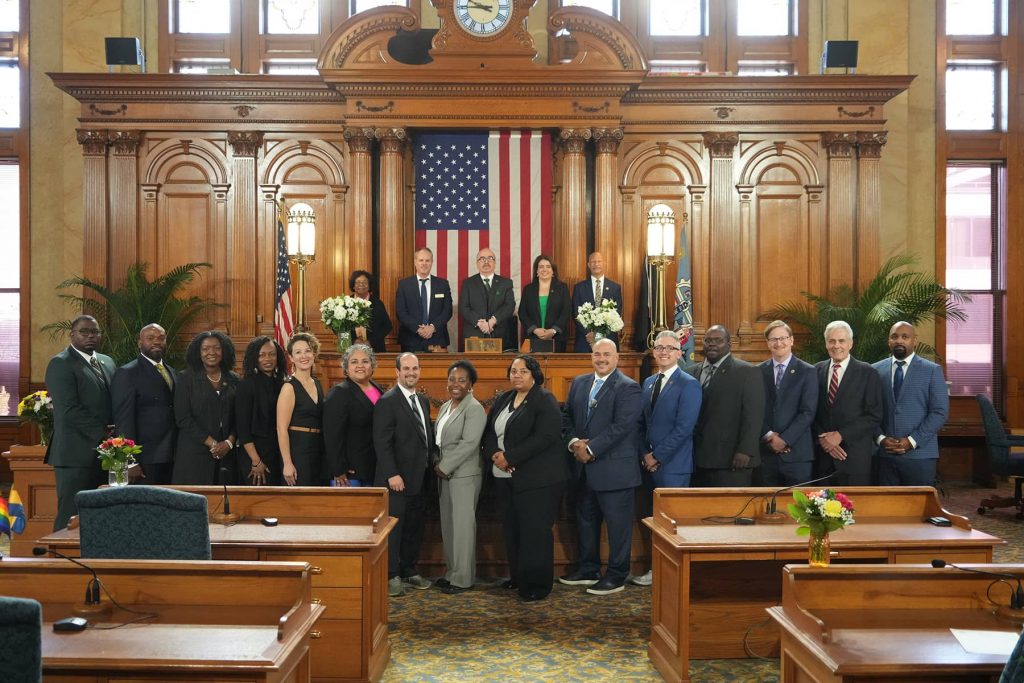
Low-paid workers across the country are getting raises because 22 states increased their minimum wages on January 1 or near the end of last year.
Those raises will lift workers out of poverty, help struggling families make ends meet, and make it easier for workers to achieve financial security. A minimum wage increase gives a particular boost to workers of color, for whom a long history of wage discrimination has depressed wages.
Unfortunately, Wisconsin workers will not get any of those benefits, as Wisconsin was not among the states that increased their minimum wages. Wisconsin’s minimum wage is still stuck at $7.25, far below the $12 to $14 that some states now set as the minimum. Wisconsin’s minimum wage was last raised in 2009 – over a decade ago – and has lost about 16% of its purchasing power since then. That’s a difference of roughly $2,400 per year.
Workers should earn enough to support their families. But Wisconsin’s low minimum wage means that a full-time, full-year worker in Wisconsin can earn as little $14,500 per year. For a single parent, working at the Wisconsin minimum wage puts them below the poverty line and unable to meet their family’s basic needs.
The minimum wage increase in other states will lift the earnings of a significant chunk of the workforce and put millions more in wages into workers’ pockets. Across the country, nearly 7 million workers will directly benefit from the wage increases, with a $8.2 billion increase in annual wages over the course of 2020. Depending on the increase in their state, affected workers will see their annual paychecks increase by between $150 to $1,700 – enough to buy a few bags of groceries, pay for a car repair, or catch up on back rent.
The large number and variety of states with increases in the minimum wage shows that this issue cuts across partisan lines. Several thoroughly “red” states that have legislatures and governor’s seats controlled by Republicans upped their minimum wage at the beginning of this year, including Arizona, where the minimum increased to $12.00, South Dakota, where the minimum increased to $9.30; and Arkansas, where the minimum increased to $10.00.
In some states, the minimum wage automatically goes up at the beginning of the year because lawmakers have set a process to ensure that the wage floor keeps pace with inflation. In other states, the increases that took place this month are part of increases that are gradually phased in over several years, set in motion either by successful ballot measures or legislation.
In 2019, Governor Evers proposed gradually raising Wisconsin’s minimum wage to $10.50, a move that would have raised the pay of 464,000 workers in the state. More than one quarter (28%) of Black workers and nearly a third (31%) of Latinx workers would have gotten a raise under the governor’s plan. Republican lawmakers killed the proposal, leaving Wisconsin in the shrinking pool of states that have not raised their minimum wages in more than a decade.
A higher minimum wage means that workers will be better able to make ends meet and support their families, but the benefits don’t end there. Beyond simply lifting pay, researchers have found that higher minimum wages have led to clear improvements in the welfare of families and communities. Higher minimum wages are tied to variety of positive outcomes like reduced suicide rates, lower rates of smoking, and lower property crime rates.
More income in the pockets of workers also translates to additional economic activity as workers spend their raises at local businesses on things like buying school clothes for their children or paying off medical bills. And an enormous body of research examining the real-world effects of minimum wage hikes finds that raising the minimum wage has little, if any, impact on employment levels.
In 2020, millions of workers in other states will reap the benefits of a higher minimum wage. Wisconsin workers deserve to as well.
Tamarine Cornelius
Originally published on wisconsinbudgetproject.org
Help support the Wisconsin Budget Project with a donation. The organization is engaged in analysis and education on state budget and tax issues, particularly those relating to low-income families. It seeks to broaden the debate on budget and tax policy through public education and by encouraging civic engagement on these issues.













